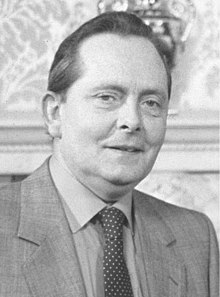The Lasting Legacy of Brian Walden in British Broadcasting

Introduction
Brian Walden, a name synonymous with British broadcasting, has left an indelible mark on the landscape of television journalism and political commentary in the UK. His ability to engage with viewers and dissect complex issues made him a trusted voice for millions. With recent discussions and tributes following his passing, it is essential to reflect on his contributions and relevance in today’s media environment.
A Influential Career
Born in 1932, Brian Walden initially embarked on a career in politics, serving as a Labour MP for Birmingham All Saints from 1964 to 1974. However, he found his true calling in broadcasting, transitioning to television where he became a formidable figure. One of his most notable roles was as the host of ‘Weekend World,’ a current affairs programme that aired from 1972 to 1988. This show was instrumental in setting a high standard for political discourse on television, merging in-depth interviews with critical analysis.
His Interview Style
Walden was renowned for his interview style, marked by a blend of incisiveness and charm. He possessed the rare ability to put politicians under pressure while maintaining a civil and respectful tone. This approach won him accolades and set a precedent for future broadcasters. His interactions with prominent figures, including Prime Ministers and leading politicians, often revealed crucial insights, shaping public understanding of vital issues. Walden’s legacy is evident in the current generation of journalists and presenters who emulate his thoughtful and probing style.
Enduring Impact on Public Life
The significance of Brian Walden extends beyond his television career. He contributed columns to various newspapers, providing pithy commentary on politics and society. His analysis often challenged conventional wisdom and encouraged audiences to think critically about the world around them. As political landscapes shift, Walden’s insights remain relevant, serving as a reminder of the vital role of informed critique in a democracy.
Conclusion
Brian Walden’s passing earlier this year has prompted a wider reflection on his contributions to British broadcasting and public life. As discussions about media integrity and the role of journalism continue, Walden’s work serves as both a benchmark and an inspiration. His legacy is a testament to the power of thoughtful dialogue and critical engagement in shaping public discourse. For viewers and media professionals alike, Walden’s career is a reminder of the responsibilities inherent in communicating with clarity and purpose.







